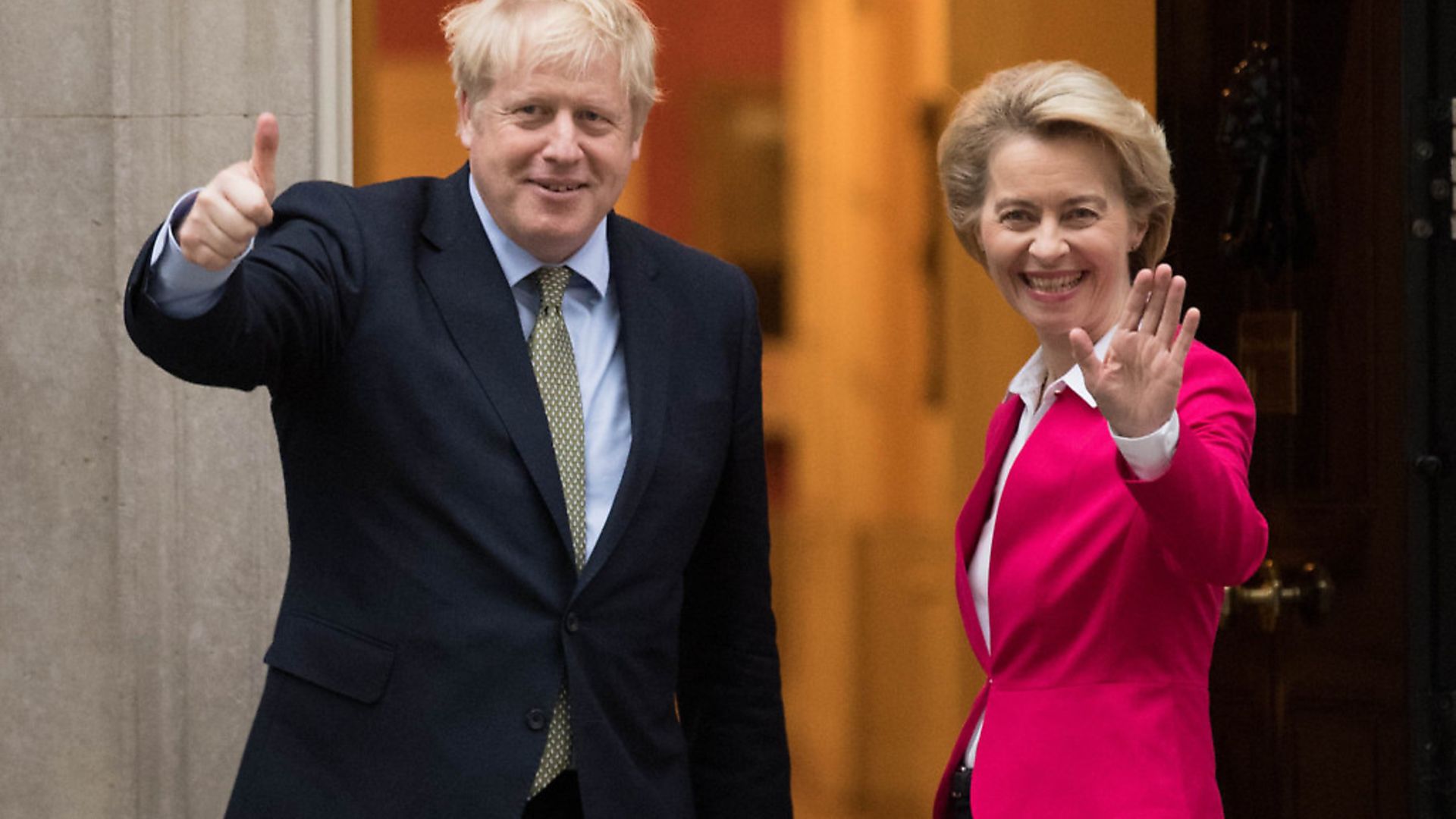
Hussein Kassim on where the stumbling blocks remain, and what might sweep them out of the way
A new optimism followed the recent conference between Boris Johnson and Ursula Von der Leyen. In the run-up, the media had reported an apparent softening of the UK position, as well as pressures on the EU negotiator Michel Barnier from among the EU27 to revisit his negotiating mandate. Indeed, the fact that the conference took place at all was a positive sign, given London’s earlier warning it would walk away from talks if insufficient progress had been made in June.
So there’s a renewed urgency. Round six is under way and negotiations are to continue over the summer. Given all this, what are the prospects of an agreement before October, to allow time for ratification before the transition period ends on December 31?
There are, of course, strong economic incentives on both sides to reach. The UK and the EU27 remain important trading partners, and although no-deal is a ‘less worse’ proposition now than it was in the context of the Withdrawal Agreement, it would still be disruptive on both sides and exacerbate the economic damage of Covid-19. The EU side has a strong interest in an agreement that would minimise impediments to trade and ensure stability and predictability in relations with an important neighbour.
On the UK side it is important for the government to avoid the further reputational damage suffered on account of its management of the pandemic that it would experience if there was no deal.
However, neither a commonality of interests alone nor strong incentives to cooperate is enough to deliver an agreement.
There might be grounds for confidence if there had been evidence of progress thus far, and a potential landing zone had come into view. As it stands, however, the two sides remain divided on four issues.
The level playing field: The UK wants ‘zero tariffs and zero quotas’ for its exports, while the EU insists on measures, guarantees and dispute settlement mechanisms which would ensure that UK business does not benefit from unfair advantages, such as lower environmental or labour standards, or state aid.
The UK contends it is asking for no more than the EU offers in other free trade agreements, which the EU rebuts by highlighting the need to reflect the UK’s proximity and levels of trade and interaction with the EU, and points to requests, especially concerning services, where the UK asks for more than the EU offers in its other FTAs, including with Canada. The UK also argues that it would not be able to exercise ‘regulatory autonomy’ if it were to accede to the EU’s demands. The EU, however, will not allow access to businesses from a jurisdiction which has an uncompetitive advantage due to lower standards. Further, London claims that the UK’s democratic and sovereign rights would be infringed by the conditions proposed by the EU. However, any agreement adopted by the UK parliament could reasonably be deemed to be democratic.
Fish: In this economically marginal, but politically symbolical sector, the UK wants an annual negotiation of quotas, based on the principle of ‘zonal attachment’, or the percentage of fish inside a 200-mile around the shoreline. This is because it estimates that EU-based boats catch around eight times the number of fish in UK waters that UK ships catch in EU waters. The EU wants to maintain continued access to UK waters for EU member states at current levels, and to agree quota shares for up to 25 years.
Data-sharing: The UK wants access to EU Schengen area and Europol databases as part of continued cooperation in security. The EU has offered more limited information sharing on the grounds that there are legal constraints on permitting access to outsiders and requires guarantees concerning data adequacy.
Governance: The UK would like a series of mini agreements to cover the different areas of the Political Declaration. The EU wants a single agreement and a single governance framework.
These are the four areas where compromise is necessary and the timescale is extremely short. The negotiations will be influenced by perceptions of the extent to which the two sides are upholding their obligations under the agreement signed last autumn. The EU will continue to monitor the UK’s compliance with its obligations on the Irish border, especially border arrangements and the systems for managing customs and phytosanitary procedures. These will affect what safeguards the EU considers necessary in any agreement on the future relationship.
The incoming German presidency had led some UK politicians to voice the hope that Berlin will make the rest of the EU ‘see sense’ and compromise so an agreement can be reached. Angela Merkel has sought to quash this speculation. Solidarity among the EU27 has been a constant since 2016, and Berlin has frequently led the chorus in support of the EU negotiator. There have been few, if any, signs of fractures.
Given the scope, scale and complexity of the agreement both sides say they want, the challenge for reaching a deal is formidable. Not only must important compromises be made, but they have to be sold to constituencies.
On the EU side, the mandate allows some room for flexibility. For the UK, much will depend on the prime minister’s political capital and salesmanship.
Hussein Kassim is a senior fellow at the UK in a Changing Europe, which first published this article









